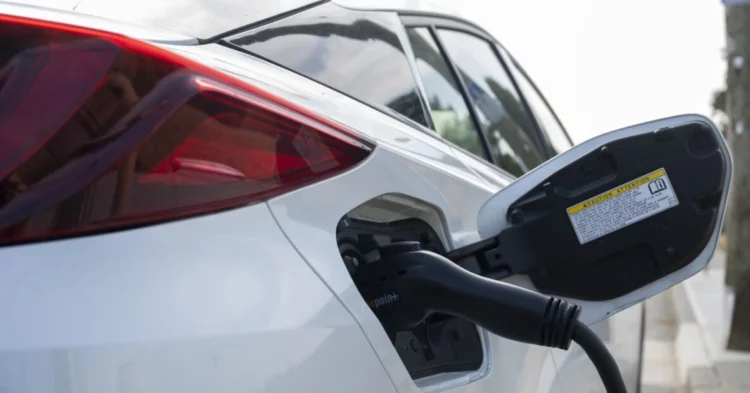Canada’s electric vehicle (EV) market is facing a steep and ongoing decline, with June 2025 marking the fifth consecutive month of shrinking sales. According to newly released data from Statistics Canada, only 14,090 zero-emission vehicles (ZEVs)—which include fully electric and plug-in hybrid models—were sold nationwide in June.
This figure reflects a 35.2 percent drop compared to June 2024 and underscores the growing gap between EVs and the broader automotive sector. While EV sales have faltered, the overall new vehicle market grew by 6.2 percent year-over-year, reaching 177,313 units in June.
As a result, EVs now make up just 7.9 percent of total vehicle sales in Canada—far below the nearly 20 percent share they held as recently as December 2024.
Table of Contents
The End of Rebates: A Key Driver of the EV Market Collapse
One of the main reasons for the sharp decline in EV adoption is the elimination of purchase incentives at both federal and provincial levels.
Federal Incentive Termination Sparks a Chain Reaction
In January 2025, the federal government officially ended the $5,000 iZEV rebate, which had previously made EVs significantly more affordable for consumers. Without that subsidy, the price difference between electric and gas-powered vehicles widened, making the switch to electric less appealing.
Provincial Programs Are Following Suit
The impact was compounded when provinces adjusted or suspended their own programs. Quebec, traditionally Canada’s EV leader, reduced its provincial rebate from $7,000 to $4,000 and then temporarily paused it for two months.
This contributed to a staggering 65 percent drop in battery electric vehicle sales in Quebec during Q1 of 2025, highlighting how sensitive the market is to financial support.
Uncertainty About Future Incentives Is Freezing Buyers
Although the federal government has promised to reintroduce some form of incentive after the April 2025 election, no timeline or concrete plan has been announced. This policy uncertainty is discouraging potential EV buyers, many of whom are choosing to wait rather than risk missing out on future rebates.
Tesla’s Market Share Shrinks as Competition and Hesitation Grow
Once the dominant EV brand in Canada, Tesla’s market presence has significantly eroded. By April 2025, the company accounted for less than 10 percent of all ZEV registrations—a dramatic fall from its nearly 50 percent share just two years ago.
This drop reflects both increased competition in the EV market and shifting consumer sentiment in the absence of consistent incentives.
Provincial Trends Paint a Mixed Picture
British Columbia: Still Leading, But Slipping
British Columbia maintained the highest EV adoption rate in Q1 2025 at 19.2 percent, but even this represents a significant decline from late 2024 levels.
Quebec: A Freefall in Sales Without Rebates
Quebec’s ZEV market share crashed from 42 percent in Q4 2024 to just 14.8 percent in Q1 2025, aligning closely with the reduction and suspension of its provincial rebate.
Ontario: Relatively Stable, Yet Uninspiring
Ontario’s EV adoption has been steadier, holding at 7.3 percent, but this reflects stagnation more than growth—another sign that Canada’s EV market is struggling coast to coast.
The 1970 Chevrolet Chevelle SS 454: The Untamed Muscle Car Legend That Defined an Era of Raw Power
A Brief Uptick, but a Fragile Future
April 2025 brought a temporary sales rebound in Quebec after the provincial incentive was briefly reinstated, but the broader national trend remains bleak. Automakers are warning of continued weak demand unless government policies are clarified and restored.
Conclusion Without Incentives, Canada’s EV Future Is on Hold
The data from mid-2025 reveals a clear story: Canada’s electric vehicle boom is over—at least for now. The removal of critical purchase incentives has deflated the market, increased buyer hesitation, and left automakers scrambling to adjust.
Unless Ottawa and provincial governments take swift, coordinated action to reintroduce and stabilize incentives, the country risks falling far behind its climate and transportation goals—just as global EV adoption continues to surge elsewhere.

